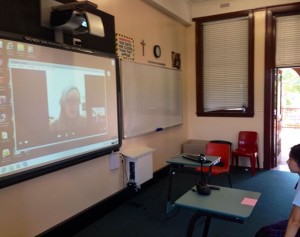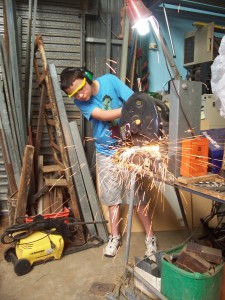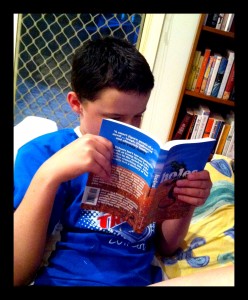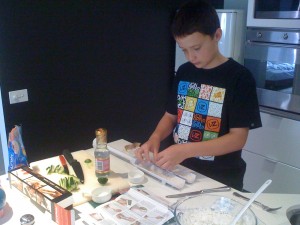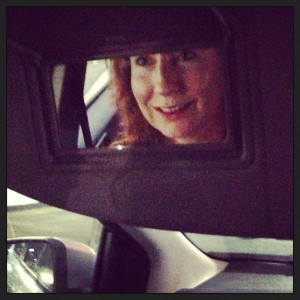I love the television show West Wing. The fictional government was ethically sound and tried to unite the country by attending the needs of the marginalised, the poor and the society as a whole. If only we had a government like that.
Education has become inextricably linked to economic ideals and this has a large impact on curriculum and pedagogy. One area where this is evident is in the “choice, competition and performance” promoted by politicians (Buchanan 2011, p.68) and I’m guilty of shopping for schools for my own son currently, as one of the financially advantaged who can do so. Another example of economic prominence in education is how students are continually viewed as a labour resource with a desire for individual success rather than as participants in a community. As Wyn (2009) claims, “Education must accommodate individual and social goals” (p.43).
I am an advocate for the type of pedagogical change Kalantzis and Cope (2012) promote for schools with their concept of “learning design” that examines “the big questions” (p.84) in an environment of “energetic intellectual inquiry and practical solution development” (p.86). Thooman et al (2011) found it is important to connect to students and create positive collaborative experiences, “education should provide students with opportunities to work on realistic and situated activities” (p.356) which supports my motto of ‘keeping it real’. National curriculum and its General Capabilities (ACARA 2011) provide a strong prospect to shift teaching from an industrial learning model to a student-centred thinking model which is the position we’re taking at my school. Next year as national curriculum is introduced, I am helping teachers to implement our REAL (Relevant, Engaging, Active Learning) Program to Year 7, a student-centred concept, as part of my role on the Innovative Learning Team.
There is an extraordinary amount of political rhetoric surrounding ICT in schools as revealed by Jordan (2011), some of which I readily accept as universal truths, such as how ICT drives change, but the main point where I am in agreement with Jordan is her criticism of students as being described as “digitally savvy” (p.245). The nature and implications of ICT in education are changing rapidly and nobody is able to keep abreast of it all. Further pressure on teachers come in the form of charismatic speakers on the education circuit such as Sir Ken Robinson and Sugata Mitra criticising the current methods of teaching and promoting their own pedagogical agenda.
This rhetoric and economic overdrive affects teachers immensely. I thus have an ongoing concern about how a pedagogical paradigm shift is integrated into schools. Too often structural change is forced onto teachers instead of in consultation and students are neglected altogether (McGregor 2011, p.15), making them both feel powerless. O’Sullivan (2007) demonstrated how teachers are tied to their role emotionally, more than to their professional pride in intelligence and ability (p.9). Thoonan et al (2011) acknowledged the role teacher self-efficacy had in motivating students. An analysis of teaching standards by Connell (2009) revealed the absence of recognition of the sheer energy required to teach, “Energy, movement, expression and fatigue all matter” (p.220). Teachers need to be supported and be involved in the change process for it to be successful.
Education needs to be like West Wing where idealism is implemented for the individuals who constitute the education community and the good of society as a whole.
Reference List
ACARA (2011). General capabilities. Retrieved from http://www.acara.edu.au/curriculum/general_capabilities.html
Buchanan, R. (2011). Paradox, Promise and Public Pedagogy: Implications of the Federal Government’s Digital Education Revolution. Australian Journal of Teacher Education, 36(2), 67-77. DOI: 10.14221/ajte2011v36n2.6
Connell, R (2009) ‘Good teachers on dangerous ground: towards a new view of teacher quality and professionalism’, Critical Studies in Education, 50.3, 213-229.
Jordan, K. (2011). Framing ICT, teachers and learners in Australian school education ICT policy. Australian Educational Researcher, 38(4), 417-431.
Kalantzis, M and Cope, B (2012) ‘New learning: A charter for change in education’, Critical Studies in Education, 53:1, 83-94.
McGregor, G. (2011). Engaging Gen Y in schooling: the need for an egalitarian ethos of education. Pedagogy, Culture and Society, 19(1), 1-20.
O’Sullivan, K (2007) ‘Unmasking the Professional Identities of English Teachers’, International Journal of Educational Practice and Theory, 29(1), 6–5.
Thoonen, E, Sleegers, P, Peetsma, T and Oort, F. (2011). Can Teachers Motivate Students to Learn? Educational Studies, 37(3), 345-360
Wyn, J. (2009). Touching the Future: Building Skills for Life and Work. Australian Education Review, 55, Australian Council for Educational Research, Melbourne.

